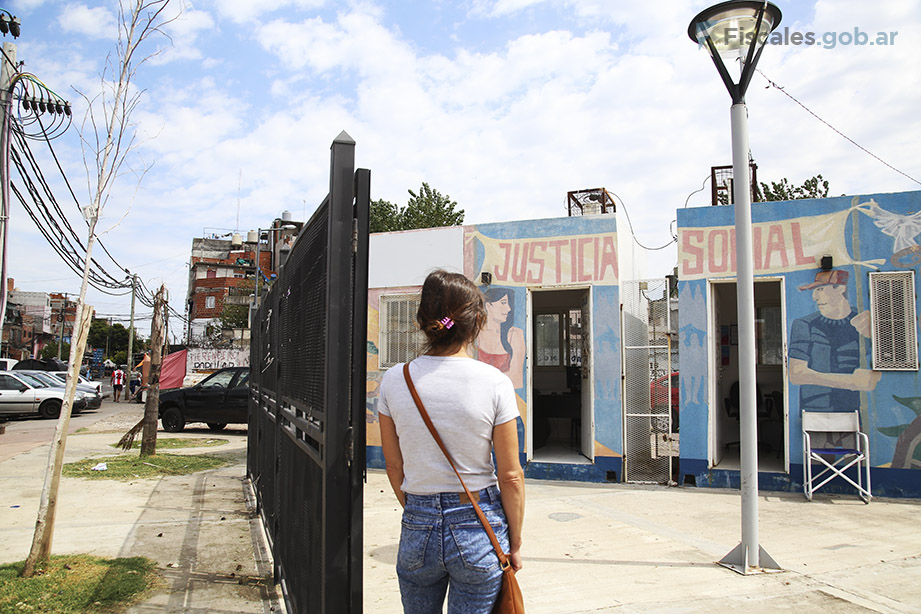The EUROsociAL+ Democratic Governance area at FIIAPP accompanies the Argentine Public Prosecutor's Office to improve access to justice for female victims of violence in the Territorial Agencies for Access to Justice (ATAJO).

Since 2012, the Argentine Public Prosecutor’s Office has taken on the challenge of strengthening an open, plural and transparent role guaranteeing access to justice as a fundamental human right, all based on the “Brasilia Rules on access to justice for people in vulnerable conditions”, approved by the Ibero-American Judicial Summit.
In this general framework, the European Union’s EUROsociAL Programme has accompanied the Public Prosecutor’s Office in designing and implementing a protocol for reporting domestic violence. The aim of the action is to strengthen the action and response of the Public Prosecutor’s Office regarding access to justice for female victims of violence in the Territorial Agencies for Access to Justice (ATAJOS). The ATAJOS are offices of the Public Prosecutor’s Office in the most vulnerable districts of the country, in which reports are received, situations of conflict are prevented and work is done on promoting rights.
As a first step, a diagnosis was carried out on the operation of the ATAJOS to analyse their capacities and needs in order to define and implement the new device for receiving complaints, and at the same time similar experiences and good practices from other countries in Europe and Latin America were studied.
From the findings of the diagnosis, it was concluded that the actions of the ATAJOS during these years have revealed the real problems and difficulties that female victims of violence who live in the most remote districts must overcome to file a complaint for domestic violence. According to 2018 data, the largest number of complaints of domestic violence are registered in those places where the ATAJOS are located, and the notable increase in complaints of violence in the period 2009-2017 registered in these same neighbourhoods should be highlighted. According to data from the Public Prosecutor’s Office on the people who came to the ATAJOS to make consultations in the same period, 72.6% were women; and among the vulnerability factors, gender is indicated as predominant in 45.3% of cases. According to these same data, although the majority of the women who came to the ATAJOS were Argentine (62.9%), in these neighbourhoods there is a large migrant population from neighbouring countries who were also served (35.1%), of which the majority are Bolivian (14.1%) and Paraguayan (14.1%).
Subsequently, a general protocol was defined for receiving complaints of domestic violence at the ATAJOS of the Autonomous City of Buenos Aires. Among other relevant issues, the protocol regulates the attention process, the complaint circuit, risk report, protective measures, the necessary inter-institutional coordination, complaint registration system and the monitoring and evaluation system.
Finally, the Protocol was recently launched by the Directorates-General for Gender Policies and Access to Justice of the Public Prosecutor’s Office, with the support of EUROsociAL+ in the ATAJO of Villa 1-11-14 of the Autonomous City of Buenos Aires. According to an evaluation report of the first months of the application of the Protocol, “in high-risk cases, the device allows a complaint to be made more quickly and closely, and facilitates access to justice for female victims of violence.”



